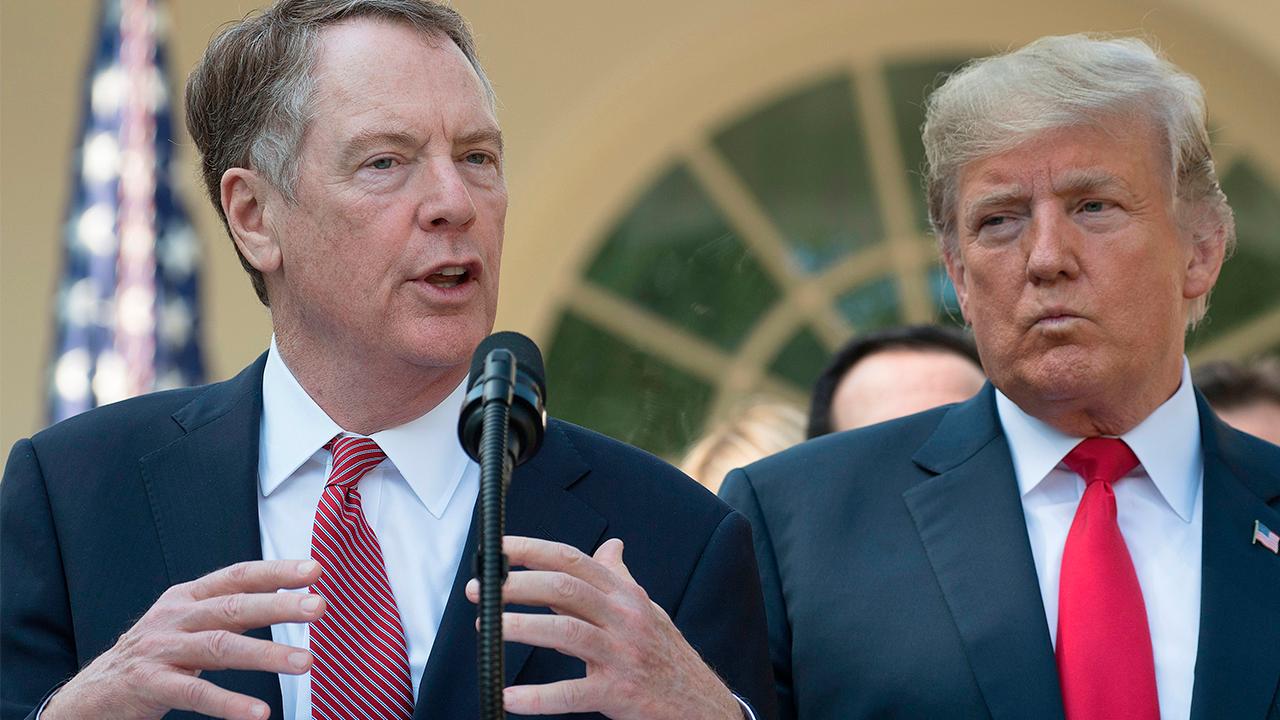Is China living up to US trade deal after coronavirus swoon?
2017 purchases are a good measuring stick
China is giving the U.S. “every indication” it plans on living up to a historic trade agreement earlier this year despite headwinds from the COVID-19 pandemic, according to U.S. Trade Representative Robert Lighthizer.
Beijing has already purchased $10 billion, or more, of U.S. farm goods after a $500 million soybean purchase in June. The trade agreement calls on Beijing to buy $40 billion to $50 billion of U.S. agriculture products over the next two years.
“The way I keep track of things is I have 2017, which is like their best year ever, and then where they are now in purchases on a monthly basis versus that,” Lighthizer told the House Ways and Means Committee on Wednesday.
CORONAVIRUS SPEEDS UP AMERICAN SUPPLIERS' EXODUS FROM CHINA
Lighthizer, who was responding to a question about Beijing’s commitments to its agreement to buy U.S. cotton, said purchases were already north of $1 billion, which is “way above” where they were in 2017.
While noting that there is still a “fair amount” of cotton purchases to go, Lighthizer said the purchases to date are a “particularly important” indicator that Beijing remains committed to the trade deal as China's apparel industry has suffered amid the pandemic.
Lighthizer added that although the trade deal didn’t start until February 14 and exclusions didn’t begin until March, he expects China to “make their commitments” to the U.S. for the calendar year.
CLICK HERE TO READ MORE ON FOX BUSINESS
The trade pact that the two countries reached in January called on Beijing to purchase an additional $200 billion of American goods over the next two years, in addition to making reforms to halt intellectual property theft and currency manipulation and promote cooperation in financial services.
Aside from the agricultural purchases, Beijing must buy an additional $40 billion in services, $50 billion in energy and up to $80 billion worth of manufacturing.
In return, the U.S. reduced tariffs imposed by President Trump on some goods, but kept duties on $375 billion worth of merchandise.
That's a significant amount of levies, he noted, that reflects the desire to rebalance trade as well as the intertwined and interdependent relationship the U.S. and China now have.
"Do I think that you can sit down and decouple the United States economy from the Chinese economy now?" Lighthizer asked. "That was a policy option years ago, but I don't think it's a policy or reasonable policy option at this point. I think you will see supply chains come back as a result of U.S. policy."
“I expect them to live up to the agreement,” Lighthizer said. “They have indicated they will.”




















